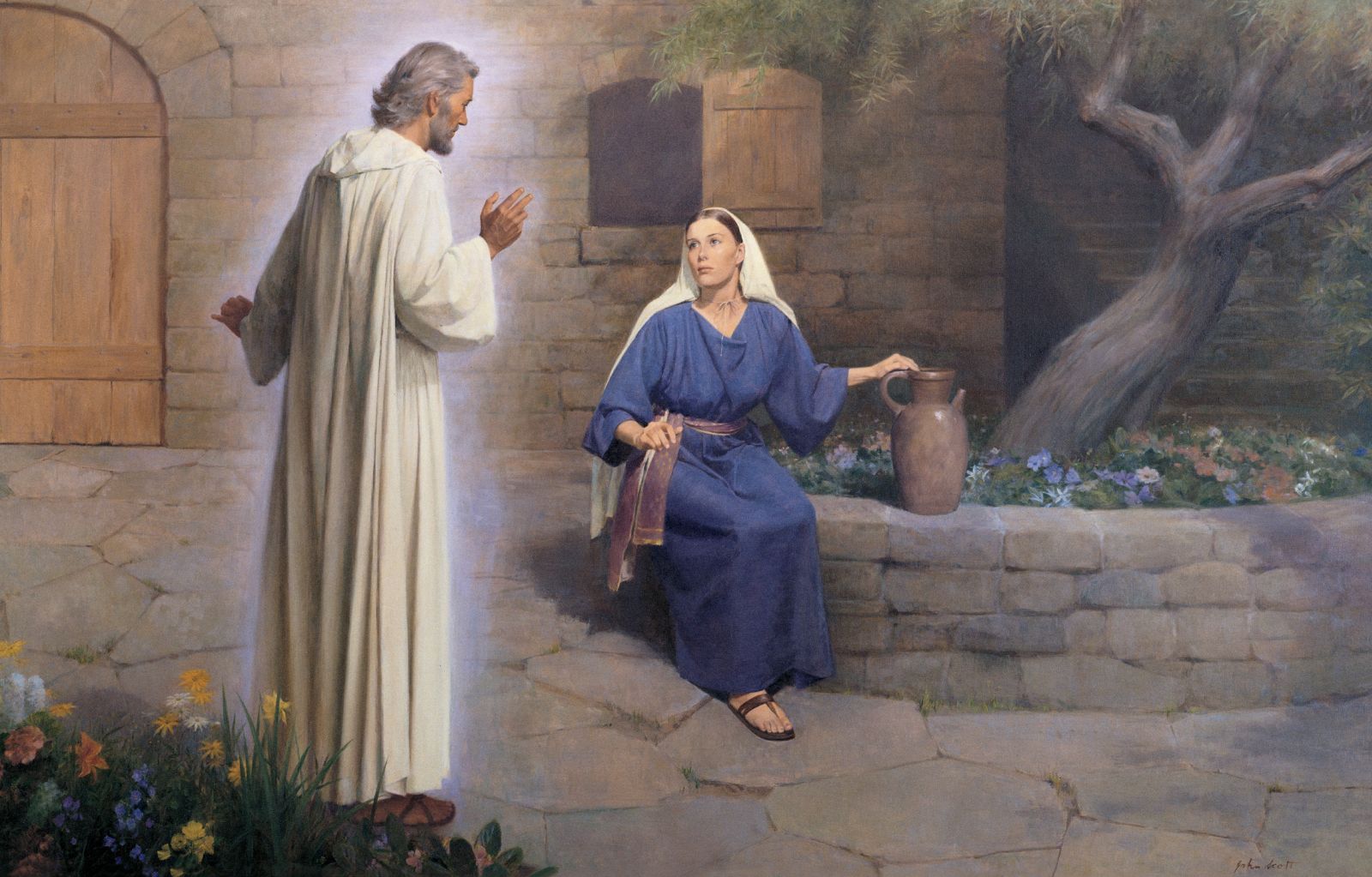To accompany your Come Follow Me study January 2-8
In addition to reading the indicated chapters, you may wish to:
- Read the applicable portions of the New Testament Institute Student Manual at https://www.churchofjesuschrist.org/study/manual/new-testament-student-manual/introduction-to-matthew/chapter-2?lang=eng and https://www.churchofjesuschrist.org/study/manual/new-testament-student-manual/introduction-to-the-gospel-according-to-st-luke/chapter-15-luke-1-3?lang=eng
- Watch the video Come Follow Me (Jan 2-8) – Matthew 1, Luke 1 | Lineage Upon Lineage at Come Follow Me (Jan 2-8) – Matthew 1, Luke 1 | Lineage Upon Lineage – YouTube
- Watch the video The Christ Child: A Nativity Story at https://www.youtube.com/watch?v=yXWoKi5x3lw&t=6s
- Watch the video An Angel Foretells Christ’s Birth to Mary at https://www.youtube.com/watch?v=Qq7NFiZL6ak
- Watch the video Mary and Elisabeth Rejoice Together at https://www.youtube.com/watch?v=3WLF3cwXfGc
- Watch the video The Naming of John the Baptist at https://www.youtube.com/watch?v=YUVvTYLgoBM
- Watch the video The Gospel According to Matthew from 1:56-6:45 minutes at https://www.youtube.com/watch?v=woAhReBytBk&t=6494s
- Watch the video The Gospel of Luke from 1:46-17:50 minutes at https://www.youtube.com/watch?v=2PHPLApTt7Y
If you would like a Kahoot game related to this material which you could use for personal study or use with your family or your class, click here: https://create.kahoot.it/share/matthew-1-and-luke-1/bc7c0228-fd5f-4d15-85fa-afc5949d0058. (To use it with a group, after clicking on this link, you will need to log into Kahoot, creating a free account if you have not done so previously, then click on the blue “Start” button.)
Points to Ponder in Matthew 1 and Luke 1
1. Why would Matthew have given the genealogy of Joseph, rather than of Mary, since Jesus was not biologically related to Joseph at all?
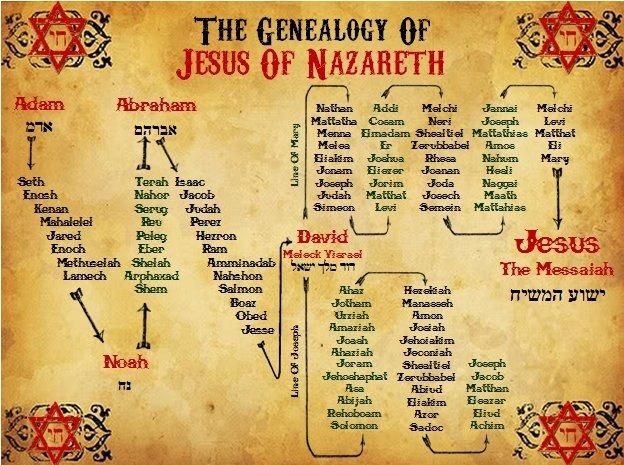
2. What relevance does the fact that the unborn John the Baptist “leaped in [Elisabeth’s] womb for joy” have for the abortion question?
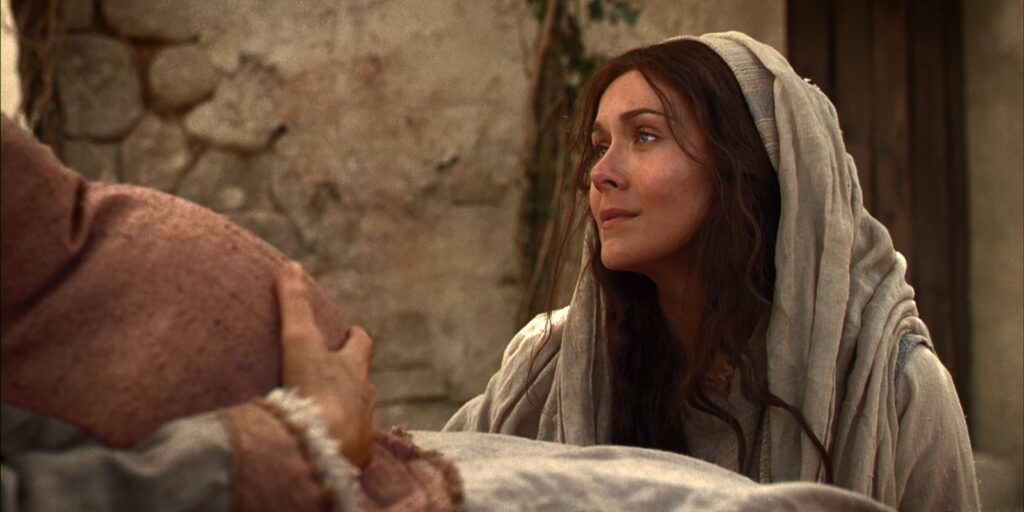
3. What important principle can we conclude from the fact that Rahab, David, Bathsheba, Judah, Tamar, Solomon, and Rehoboam are all listed in Jesus’ ancestry?
4. How did Jesus’ divine conception serve as a test for (a) Mary? (b) Joseph? (c) Jesus himself?
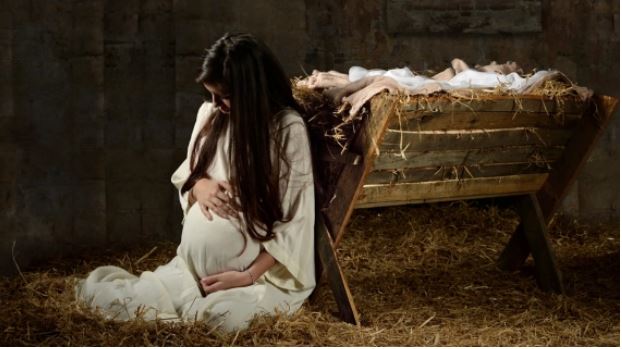
5. What do we learn about the character of Joseph in these chapters that would have helped qualify him to be the step-father of the Son of God?
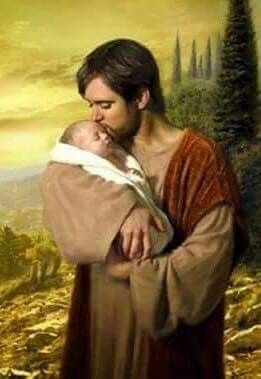
6. What evidence can you cite in these chapters of Mary’s, Zacharias’, and Elisabeth’s worthiness for their respective assignments as parents?
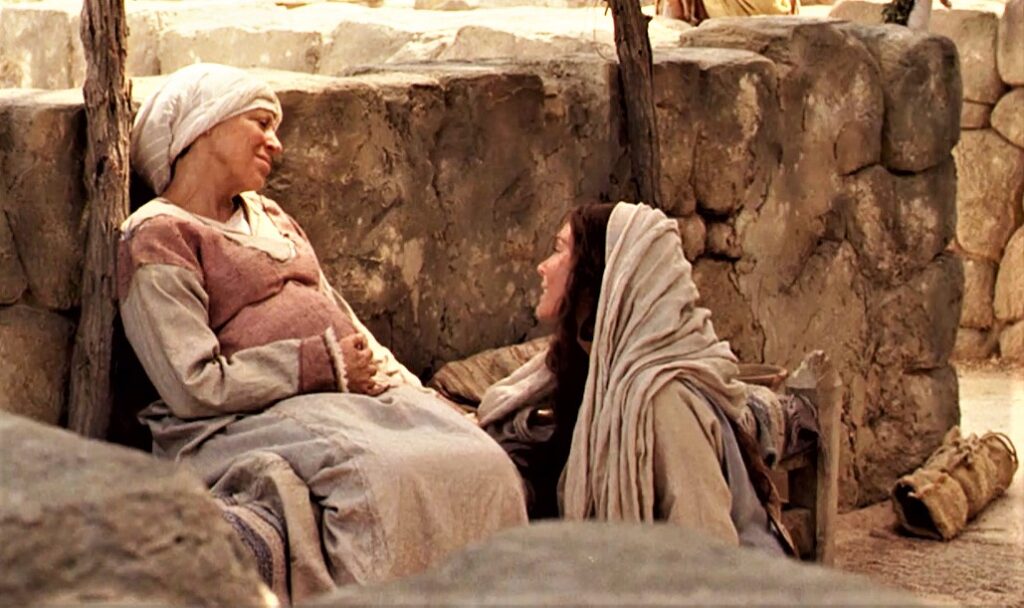
7. How many separate instances of divine intervention, through angelic visitation, the gift of prophecy, or miracles, can you find in these chapters? How many different mortals were involved?
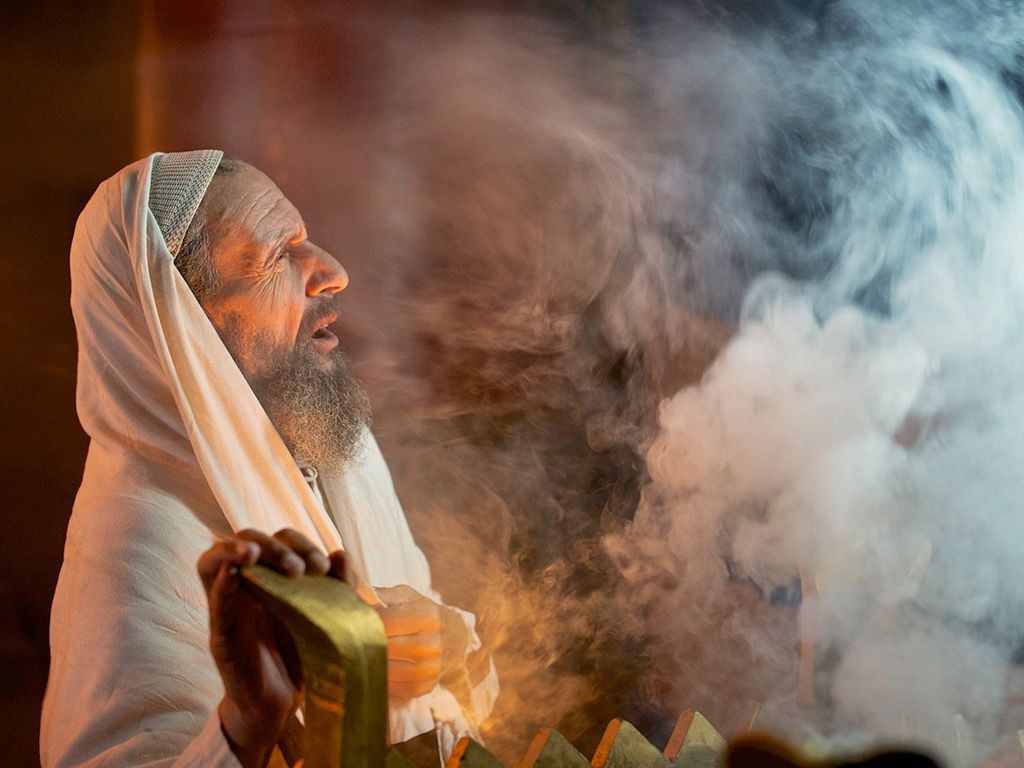
8. Why wasn’t Mary struck deaf and dumb for being skeptical of Gabriel’s message, as was Zacharias?

9. What other applications can you think of for Gabriel’s promise that “with God nothing shall be impossible”? What does it NOT mean? How might we want to reword Gabriel’s statement to make it more completely accurate?

10. Is it true that Joseph Smith taught that Zacharias, the father of John the Baptist, was killed in the temple because he wouldn’t divulge the hiding place of his son?
Possible Answers to Points to Ponder in Matthew 1 and Luke 1
1. Why would Matthew have given the genealogy of Joseph, rather than of Mary, since Jesus was not biologically related to Joseph at all?
To show that Jesus, who was legally recognized as Joseph’s mortal son, had the right to rule as king in Israel as the heir to king David’s throne. Though His enemies raised many objections to His claims to be the Messiah, we have no record of their ever opposing Him on grounds that He was of the wrong lineage. As Elder James E. Talmage noted, “Had Judah been a free and independent nation, ruled by her rightful sovereign, Joseph the carpenter [Jesus’ adoptive father] would have been her crowned king; and his lawful successor to the throne would have been Jesus of Nazareth, the King of the Jews” (Jesus the Christ, 82).” Also, it is worth remembering that Joseph and Mary were cousins, so their genealogies were in fact very similar.
2. What relevance does the fact that the unborn John the Baptist “leaped in [Elisabeth’s] womb for joy” have for the abortion question?
Probably none. There are plenty of good reasons to oppose abortion, but Elisabeth’s exuberant exclamation does not prove that babies have extrasensory perception and are able to feel emotion prior to birth. It may well be that the unborn John simply coincidentally kicked his mother at that moment, as babies have been known to do with some frequency. Elisabeth clearly assumed it was for “joy,” but that is not sufficient reason for us to accept it as a doctrinal truism.
3. What important principle can we conclude from the fact that Rahab, David, Bathsheba, Judah, Tamar, Solomon, and Rehoboam are all listed in Jesus’ ancestry?
We learn that one can be morally perfect despite having ancestors who were themselves morally tarnished. Or as the Second Article of Faith puts it, “We believe that men will be punished for their own sins, and not for Adam’s transgression,” nor for those of any others in our ancestral lines.
4. How did Jesus’ divine conception serve as a test for (a) Mary? (b) Joseph? (c) Jesus himself?
- Mary would have to face those who would naturally assume she had become pregnant out of wedlock.
- Joseph would have to face the logical suspicion that he had impregnated Mary prior to their marriage.
- Jesus would have to endure the societal stigma of having evidently been conceived out of wedlock.
5. What do we learn about the character of Joseph in these chapters that would have helped qualify him to be the step-father of the Son of God?
- Matt. 1:19: “A just man” who was not willing to cause public shame to his betrothed, even though he had ample reason to believe initially that she had been unfaithful to him.
- Matt. 1:20: Worthy to receive a visit from an angel in a dream.
- Matt. 1:24: Was willing to obey the angel and marry Mary in spite of her pregnancy.
- Matt. 1:25: Was willing to not have normal marital relations with Mary until after the birth of Jesus.
6. What evidence can you cite in these chapters of Mary’s, Zacharias’, and Elisabeth’s worthiness for their respective assignments as parents?
- Zacharias and Elisabeth both walked “in all the commandments and ordinances of the Lord blameless.”
- Zacharias was a faithful priest, performing his assigned duties in the temple, even after being struck deaf and dumb for a season. (Luke 1:23)
- Zacharias (Luke 1:11) was worthy to receive the visit of the angel Gabriel.
- Zacharias, after his hearing and speech were restored, “was filled with the Holy Ghost” and prophesied. (Luke 1:67.)
- Mary was said by Gabriel (Luke 1:28) to be “highly favoured,” “blessed among women,” and that the Lord was with her and (Luke 1:30) that she had found favor with God.
- Mary obediently said, “Be it unto me according to thy word,” when Gabriel told her of her being chosen to be the mother of the Messiah. (Luke 1:38.)
- Mary said, “My soul doth magnify the Lord” and similar words which showed her devotion to God. (Luke 1:46)
- Elisabeth was “filled with the Holy Ghost,” which cannot dwell in unclean tabernacles. (Luke 1:41), and spoke prophetically (Luke 1:42-43).
7. How many separate instances of divine intervention, through angelic visitation, the gift of prophecy, or miracles, can you find in these chapters? How many different mortals were involved?
There are apparently ten such recorded instances, involving five different individuals:
- Mary conceived as a virgin. (Matt. 1:18)
- Gabriel appeared to Joseph in a dream (Matt. 1:20)
- Gabriel appeared to Zacharias in the temple. (Luke 1:11)
- John the Baptist was filled with the Holy Ghost, even from his mother’s womb, and after birth “waxed strong in spirit.” (Luke 1:15, 80)
- Zacharias was struck dumb (and evidently deaf). (Luke 1:20)
- Elisabeth conceived in her old age. (Luke 1:24)
- Gabriel appeared to Mary. (Luke 1:26ff)
- Elisabeth “was filled with the Holy Ghost” and prophesied. (Luke 1:41ff)
- Zacharias’ hearing and speech were restored. (Luke 1:64)
- Zacharias was “filled with the Holy Ghost, and prophesied.” (Luke 1:67)
8. Why wasn’t Mary struck deaf and dumb for being skeptical of Gabriel’s message, as was Zacharias?
We probably don’t have enough details of both angelic visitations to point out the differences which must have existed in their attitudes and responses. On the surface, Zacharias’ “Whereby shall I know this?” sounds a lot like Mary’s “How shall this be, seeing I know not a man?” Possibilities could include:
- Maybe Zacharias was more doubting than Mary, even though that is not clear from the record.
- Perhaps Zacharias’ age (probably 60-80) compared to Mary’s (probably 12-15) meant more should have been expected of him.
- Perhaps it was less essential that Zacharias speak during the ensuing months than it would have been for Mary, due to the different responsibilities each would have during that time.
In any case, it is clear that the Lord was not terribly displeased with Zacharias, as He still blessed him to be the father of the forerunner of the Messiah and filled him with the Holy Ghost and gift of prophecy soon after John was born.
9. What other applications can you think of for Gabriel’s promise that “with God nothing shall be impossible”? What does it NOT mean? How might we want to reword Gabriel’s statement to make it more completely accurate?
Perhaps it would be better to say, “With God nothing shall be impossible that is according to God’s will and is not a contradiction in terms.” For example, it is not possible even for God to make a rock so big that He could not lift it, as that would be a contradiction in terms, or a logical impossibility. God cannot save His people in their sins, for a similar reason. Neither can any man do the seemingly “impossible” just because he wants to. For example, we cannot walk on water, no matter how much positive mental attitude we conjure up, unless the Lord enables us to, as He did Peter. As Nephi reminds us in 1 Nephi 3:7, the Lord will always enable us to do anything He asks of us, unless He decides later to rescind the commandment because of a change of circumstances (D&C 124:49). It does not mean that God is obligated to help us do any difficult task that we have selected on our own. But it does mean that if He calls us to a certain calling or mission, He will provide the means for us to succeed in it, no matter how difficult it may appear or would be without His help.
10. Is it true that Joseph Smith taught that Zacharias, the father of John the Baptist, was killed in the temple because he wouldn’t divulge the hiding place of his son?
Probably not, despite the fact that such a statement is quoted in the Teachings of the Prophet Joseph Smith. See Lynne Hilton Wilson’s article, “The Confusing Case of Zacharias,” at The Confusing Case of Zacharias | Religious Studies Center (byu.edu), where she points out that although this apocryphal story was circulating at the time and was quoted in the Times and Seasons, there is no evidence that Joseph Smith personally did or did not believe it or gave it any kind of prophetic stamp of approval.
